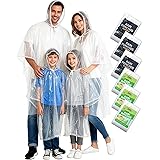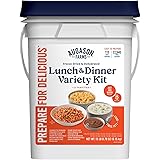Why Most Families Are Unprepared for Emergencies
Here are the top four semantic keyword phrases I’ll be discussing:
- Emergency preparedness challenges
- Importance of emergency plans
- Common misconceptions about emergencies
- Strategies for family preparedness
Emergency Preparedness Challenges
Understanding the Mental Block
You know, one of the biggest struggles I’ve seen personally is this mental block many families have when it comes to preparing for emergencies. It’s like we have this instinct to believe that “it won’t happen to us.” Let’s face it, we all live busy lives, and when something seems far off and unlikely, we tend to push it aside.
This mindset can lead to dangerous complacency. Trust me, I’ve been there! I used to think the same way until a close friend faced an unexpected flood. It was their wake-up call, and that stuck with me. We need to shift our thinking to recognize that preparedness isn’t about worrying, but about being smart and proactive.
Another challenge is the overwhelming amount of information out there. Where do you even start? I remember feeling lost when I began my journey into preparedness, and it can be a bit paralyzing. We have so many resources, yet it often leads to confusion instead of clarity.
Importance of Emergency Plans
Creating a Family Emergency Plan
The first step in getting your family ready is crafting an emergency plan, and let me tell you—it’s crucial! In my experience, when you sit down with your family and map out a plan, it’s empowering. Everyone knows what to do if something unexpected happens, which calms anxiety.
Involve everyone in the process, even the kids! I had my children help decide where we would meet in case of an emergency. Their excitement made them more invested in the process. It’s essential to practice these plans too. We make it a family night, and it turns into this bonding experience while reinforcing safety.
Don’t forget to update your emergency plans regularly. Life changes fast! Add new family members, change jobs, move homes—any of these can affect your plan. Keeping it current ensures everyone knows what to do when it really matters.
== > What if ... Get a FREE Subscription to PREPARE
Common Misconceptions About Emergencies
Debunking Myths Around Emergencies
<p There’s a ton of misinformation out there about emergencies, and it can lead families down the wrong path. For instance, one common myth is that you only need to prepare for natural disasters. I used to think that way, but emergencies can come in many forms—fires, medical issues, or even cybersecurity breaches.
Another misconception is that you need to spend a fortune to be prepared. Here’s my secret: a little creativity and resourcefulness go a long way! Stocking up on essentials doesn’t have to break the bank. I started small, and each week, I added a few essential items to our home. Before I knew it, we had a solid stash without spending heaps on fancy gear.
Some families also believe they’ll have enough time to prepare when something happens. Spoiler alert: this often isn’t true! You don’t want to be scrambling to think straight—preparation needs to happen before the emergency strikes, so take action today!
Strategies for Family Preparedness
Building Your Emergency Kit
So here’s the deal: an emergency kit is a must-have. From my own experience, it’s like having a safety net for those unexpected situations. I’ve found that starting with the basics is the best approach; think food, water, first-aid supplies, and flashlights. Over time, you can customize yours based on your family’s specific needs.
Let’s chat about food for a sec. Choose items that have a long shelf life but are also something your family will eat. Canned goods, granola bars, and dried fruits work great! I always involve my kids in the selection; it helps them become familiar with the items and gives them a sense of ownership over our kit.
Regularly check and replenish your kits. Trust me, there’s nothing worse than thinking you’re prepared only to find expired items when it’s too late. I set a reminder every six months to go through our supplies and make sure everything is fresh and ready to go.
Conclusion
Honestly, I wish more families would take these steps to prepare. The thought of being caught off guard in an emergency is scary. But with a little bit of planning, everyone can feel more secure and ready. Remember, emergency preparedness isn’t a one-time thing; it’s a continuous process that pays off in spades.
Frequently Asked Questions
Why are families often unprepared for emergencies?
Many families face common barriers like complacency, misinformation, and overwhelming choices, which can hinder their preparation for emergencies.
How can I involve my kids in our emergency preparedness efforts?
Involve your kids by asking for their input in creating an emergency plan, selecting items for your emergency kit, and even practicing drills together to make it educational and fun!
What should be included in an emergency kit?
Your emergency kit should include water, non-perishable food, first-aid supplies, flashlights, batteries, and essential medications. Personalize the kit with items specific to your family’s needs.
How often should I update my family’s emergency plan?
It’s a good idea to review and update your emergency plan at least once a year or whenever there are significant changes in your family dynamics, like moving or family additions.






